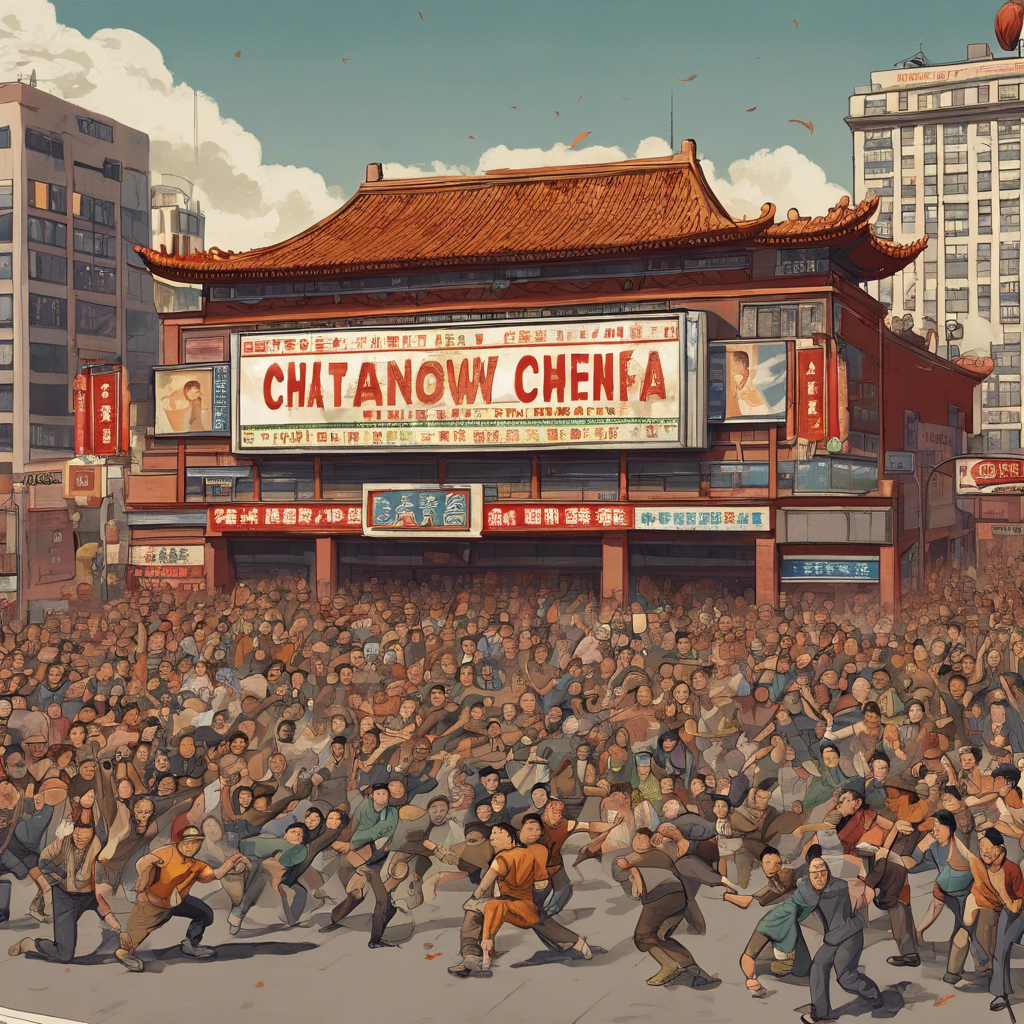The Battle for Chinatown: Activists Fight Against a Proposed Basketball Arena

Local Activists Rally to Protect Chinatown from a $1.5 Billion Basketball Arena
In the heart of Philadelphia’s Chinatown, a battle is brewing. Activists, led by Deborah Wei and her organization Asian Americans United, are once again taking a stand against a proposed development project that they believe will threaten their community. This time, it’s a $1.5 billion plan to build a basketball arena for the 76ers, mere inches away from Chinatown’s southern boundary. With a history of successfully fighting against previous projects, Wei and her fellow activists are determined to protect their neighborhood from what they see as the most serious threat yet.
A History of Resistance
Deborah Wei has been at the forefront of Chinatown’s fight against unwanted development for over two decades. In 2000, she rallied against a proposed baseball stadium for the Phillies, wearing a “No Stadium in Chinatown” T-shirt. Ten years later, she joined forces with other activists to oppose a Foxwoods casino project, updating her T-shirt to read “No Casino in Chinatown.” Now, with the basketball arena plan on the horizon, Wei and her fellow activists are once again gearing up for a fight.
The Concerns of Chinatown
For many residents of Chinatown, the proposed basketball arena represents more than just another unwanted development. It symbolizes a threat to the fabric of their community. They fear that the influx of visitors and the accompanying noise and congestion will disrupt their way of life, pushing out long-time residents and local businesses. Additionally, there are concerns about the impact on affordable housing, as property values could skyrocket in the area, making it unaffordable for many residents.
The Economic Argument
Proponents of the basketball arena argue that it will bring much-needed economic growth to the area. They believe that the construction of the arena will create jobs and stimulate local businesses. Furthermore, they argue that the presence of a professional sports team will attract more visitors to Chinatown, benefiting local restaurants, shops, and hotels. However, opponents counter that any economic gains will be short-lived and outweighed by the long-term negative impacts on the community.
The Power of Community Organizing
Asian Americans United and other community organizations have been instrumental in mobilizing the residents of Chinatown to fight against unwanted development. Through grassroots organizing, they have educated community members about the potential consequences of the basketball arena and have encouraged them to voice their concerns to local officials. Their efforts have resulted in public hearings and increased media attention on the issue, giving the community a platform to make their voices heard.
Seeking Common Ground
While the battle lines may seem firmly drawn, there are efforts underway to find common ground between the developers and the community. Negotiations are ongoing, with both sides attempting to address the concerns raised by residents of Chinatown. However, finding a solution that satisfies all parties involved will be a delicate balancing act, requiring compromise and a deep understanding of the community’s needs.
Conclusion:
The fight against the proposed basketball arena in Philadelphia’s Chinatown is not just about a single development project. It is a battle for the preservation of a vibrant and close-knit community. Activists like Deborah Wei and Asian Americans United are determined to protect the cultural heritage and quality of life in Chinatown, while developers and proponents of the arena see it as an opportunity for economic growth. As negotiations continue, the fate of Chinatown hangs in the balance, and the outcome will have far-reaching implications for urban development and community empowerment.

